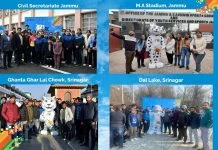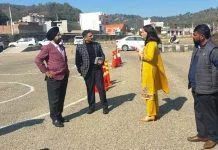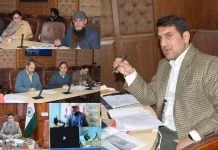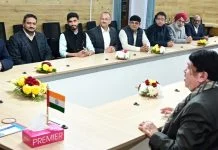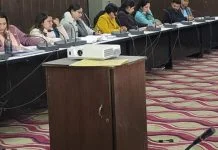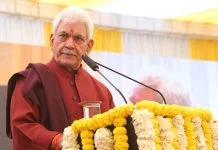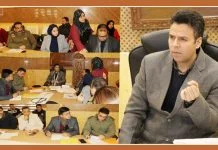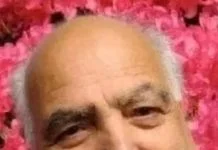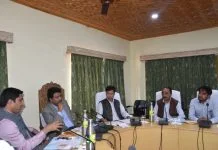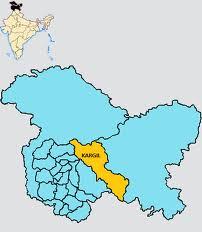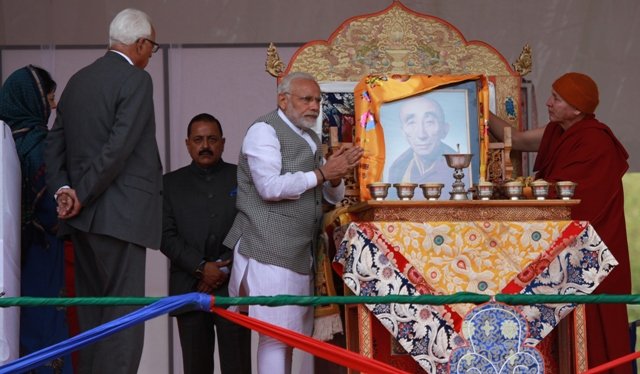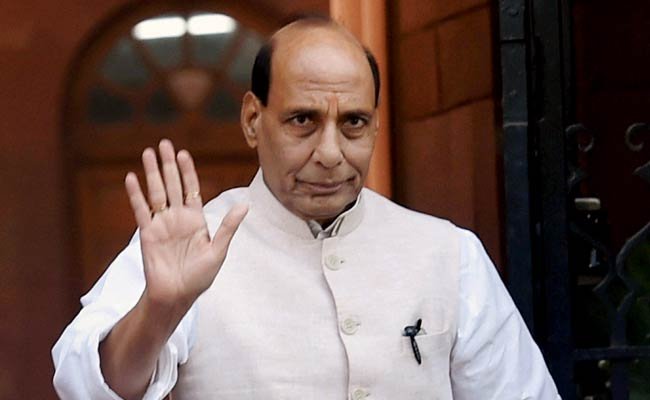A teenager was killed and dozens were injured in scattered clashes on Wednesday as Home Minister Rajnath Singh met leaders of the main political parties in a bid to break the cycle of violence in the Kashmir Valley raging for over six weeks.
Police said an 18-year-old boy was killed in firing by security forces in a south Kashmir village after he sustained pellet injuries in a clash with police in Pinglina village of Pulwama, some 30 km south of Srinagar. At least 40 people were injured in the clash.
Hours later, a suspected militant from a crowd hurled a bomb at security personnel in Pulwama town – a few kilometres further south of the Pinglina village.
Nine policemen, including a superintendent of police, a deputy superintendent and a station house officer, were injured in the attack.
Demonstrations were also held in parts of Srinagar and north Kashmir despite a strict curfew and arrest of dozens of youths participating in stone-throwing protests triggered by the July 8 killing of Hizbul Mujahideen commander Burhan Wani.
At least 69 people have been killed and thousands injured in the violence that has crippled normal life in the Kashmir Valley for 46 days.
There seemed no end in sight to the unrest even as the Home Minister arrived here to meet a cross-section of Kashmiri people and seek ways on how to break the logjam. This is his second visit in a month.
Rajnath Singh met delegations of various political parties, including the ruling Peoples Democratic Party, the opposition National Conference and the Congress. The mainstream politicians, according to informed sources, pressed the central government for a dialogue involving all stakeholders, including separatist leaders.
However, government sources in Srinagar ruled out any possibility of the minister meeting with separatist groups, who have been spearheading the agitation, seeking the right to self-determination in Jammu and Kashmir.
The separatist leaders also said there was no possibility of talks with the government “within the framework of Indian constitution”, Mirwaiz Umar Farooq said.
He demanded a trilateral dialogue between India, Pakistan and the people of J&K from across the state divided between India and Pakistan.
The minister also chaired a meeting with top police, military and paramilitary commanders and officials of intelligence agencies in the troubled state.
The sources said Rajnath Singh advised maximum restraint while dealing with civilian protests, but sought stiff action against militants mingling with crowds – as happened in Pulwama.
Earlier, on his arrival, the minister was driven through a tense Srinagar amid heightened security and a strict curfew.
Before leaving from Delhi, he tweeted that he “shall interact with civil society groups, political parties, and other stakeholders” during stay in Srinagar.
The minister extended an open invitation to all “who believe in Kashmiriyat, insaniyat, and jamhooriyat”, expressing his willingness to talk with those who have faith in the spirit of Kashmir, humaneness, and democracy.
Rajnath Singh, accompanied by Home Secretary Rajiv Mehrishi and other senior officials, flew in by a special plane into the technical area of the Srinagar international airport.
The minister is staying at the historic Nehru Guest House, on the Zabarwan Hills near the eastern shore of Dal Lake, where the government held talks with the moderate faction of the pro-Pakistan Hizbul Mujahideen militant group in August 2000.
The talks, however, broke down after the leader of the faction, Majeed Dar, was gunned down by militants.

